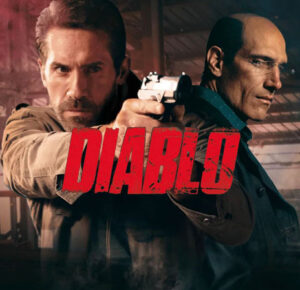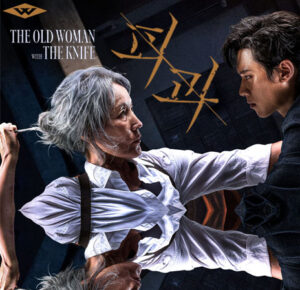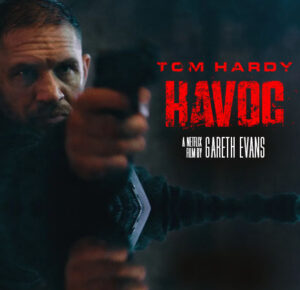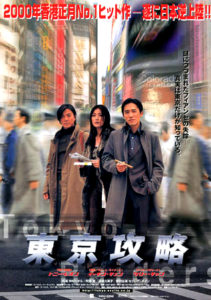
Wind Blast Blu-ray & DVD (Well Go USA)
It’s not even the Fourth of July yet and already I’m tired of all the fireworks that have been going off in my neighborhood. Anyway, let’s take a look at what’s available this week, shall we? Here are your Blu-ray and DVD releases for the week of 7/3/12:
ASIAN CINEMA
Wind Blast (Blu-ray/DVD) – Well Go USA releases this 2010 Western-tinged Chinese action film starring Wu Jing and Francis Ng
The Great Killing (DVD) – a 1964 samurai film from the director of the original “13 Assassins”
FOREIGN CINEMA
Joe + Belle (DVD) – the cover describes this 2012 Hebrew-language film as “the lesbian Thelma and Louise,” so let’s just go with that
Department (DVD) – this action-packed 2012 Bollywood picture has a bunch of tough cops fighting corruption in Mumbai
MAINSTREAM
The Hunter (Blu-ray/DVD) – Willem Dafoe tracks down the deadliest game, a Tasmanian tiger, in this acclaimed 2012 drama
God Bless America (Blu-ray/DVD) – two people fed up with contemporary society go on a shooting spree in Bobcat Goldthwait’s violent 2011 comedy
Born on the Fourth of July (Blu-ray) – Oliver Stone’s 1989 war drama starring Tom Cruise hits Blu-ray this week
Tough Enough (Blu-ray/DVD) – Dennis Quaid headlines this 1983 boxing drama, now in hi-def
Firestorm (DVD) – looks like this 1998 action vehicle starring Howie Long is receiving a new DVD pressing
Phenomenon (Blu-ray) – John Travolta has the healing touch in this 1996 drama, now in hi-def
CULT
Django Kill… If You Live, Shoot! (Blu-ray) – the good folks at Blue Underground bring this 1967 spaghetti Western starring Thomas Milian to Blu-ray
Barbarella (Blu-ray) – at last! The kinky 1968 sci-fi classic starring Jane Fonda is now viewable in hi-definition
No Holds Barred (DVD) – the new packaging makes this action movie looking like a wrestling event, but it’s actually a 1989 starring vehicle for Hulk Hogan
The Pirate Movie (DVD) – a 1982 update on the Pirates of Penzance, starring Kristy McNichol
Vanishing Point (DVD) – a 1997 Fox TV remake of the cult classic film, featuring Viggo Mortenson in the driver’s seat
ANIMATION
Treasure Planet (Blu-ray) – the 2002 Disney animated feature comes to hi-definition in a 10th anniversary package
Home on the Range (Blu-ray) – the 2004 Disney cartoon featuring singing barn animals is now on Blu-ray
HORROR
The Entity (Blu-ray/DVD) – Barbara Hershey is, um, violated by a ghost in this 1982 cult favorite horror film
Some Guy Who Kills People (DVD) – a 2011 pitch-black comedy about a comic fan who fantasizes about murdering people in his spare time
Ghost in the Machine (DVD) – this 1993 cyber-thriller follows a killer who is zapped by lightning and is then able to travel inside electronic devices
Nightwatch (DVD) – Ewan McGregor plays a morgue attendant in this 1997 thriller co-starring Josh Brolin
Quicksilver Highway (DVD) – two stories from horror icons Stephen King and Clive Barker are brought to life in this 1997 feature
Joshua (DVD) – Sam Rockwell and his wife try to figure out what’s up with their Satanic son in this 2007 horror flick
Interested in any of these movies? If so, we hope that you’ll consider ordering from our affiliate to help support this site. Thank you!






















Be the 1st to Comment